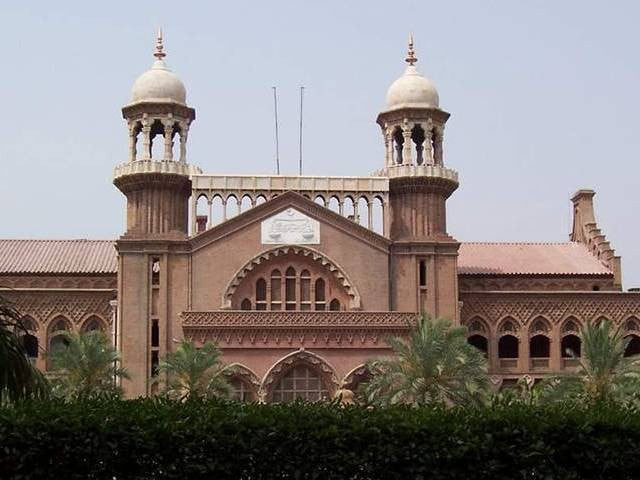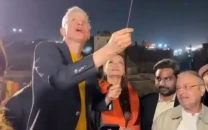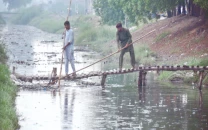Tayyaba Gul case: LHC seeks reply on plea challenging inquiry commission
Lahore High Court asks the cabinet division to submit its reply within a week

The Lahore High Court has sought a response from the cabinet division within a week on a plea challenging the formation of an inquiry commission to probe the sexual harassment allegations against former chairman of the National Accountability Bureau (NAB) Justice (retd) Javed Iqbal.
In his order on Wednesday, Justice Muhammad Shan Gul also sought legal assistance from the Attorney General of Pakistan and the Advocate General Punjab in the case.
As the proceedings commenced, the petitioner’s counsel Advocate Azhar Siddique said that the former NAB chief had been made a subject of political victimisation.
He questioned as to how a commission could be formed on a person’s request and where was the victim all this time.
Also read: 'NAB failed to sniff out corruption right under its nose'
The counsel further implored the court that the federal government issued a notification on July 23, 2022 announcing the formation of the commission to probe the aforesaid allegations.
The commission will probe the allegations of “sexual offences including assault, harassment, outraging and insulting modesty, misdemeanour, misconduct, misuse and abuse of authority” made by the complainant against the alleged offenders.
Gul, he added, had alleged before Public Accounts Committee (PAC) that DG NAB along with others installed cameras in a room at the bureau’s Lahore office, stripped her naked and made videos that were later shown to her husband to mentally torture him when he was in custody in 'fake' cases.
Also read: DG NAB Lahore moves IHC against PAC in Tayyaba Gul case
According to him, the allegations were baseless and could not be corroborated with any sort of evidence. But now a commission has been constituted under Section 3 of the Commission of Inquiry Act, 2017.
He also highlighted section 3 of the Commission of Inquiry Act, 2017 which states that the federal government may constitute a commission of inquiry in matters of public importance, but the matter at hand pertained to one individual.
The matter at hand has no nexus with public importance and instead of availing all of the civil and criminal remedies available to her, Gul opted for the commission for an inquiry which is not only illegal but without jurisdiction as well, he maintained.
The counsel asserted that the aforementioned matter was person-specific and had no nexus with public importance. This, he claimed, was sheer political victimisation by a woman who made up stories and fictitious events, ruining the image, dignity and reputation of women everywhere.
In view of the foregoing facts and peculiar circumstances of the case, it is most respectfully prayed that the petition be allowed since Section 3 of the Inquiry Commission Act, 2017 is vague, indefinite and provides unlimited jurisdiction to the federal government to constitute any commission on the basis of even a single person, the same in the present form does not set out the nature and other issues, hence, the same is illegal and ultra vires of the Articles 4, 5, 9, 10-A, 14, 15, 16, 17 and other provisions of the Constitution of the Islamic Republic of Pakistan, 1973.
Advocate Azhar Siddique further implored the court that the impugned notification of July 23, 2022 may kindly be set-aside and declared illegal.
Petitioner Zainab Umair (PTI’s MPA) had filed the petition making respondents to a federation of Pakistan (through its secretary cabinet division), Prime Minister of Pakistan (through his secretary), Cabinet Division (through its secretary), Ms Rabia Javeri Agha (chairperson National Commission for Human Rights), Ms Anis Haroon (Member Sindh National Commission for Human Rights) and Mr Nadeem Ashraf (Member Punjab National Commission for Human Rights).



















COMMENTS
Comments are moderated and generally will be posted if they are on-topic and not abusive.
For more information, please see our Comments FAQ